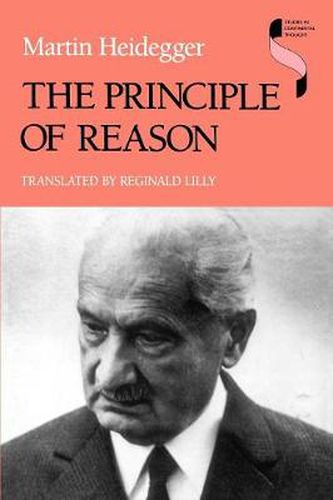Readings Newsletter
Become a Readings Member to make your shopping experience even easier.
Sign in or sign up for free!
You’re not far away from qualifying for FREE standard shipping within Australia
You’ve qualified for FREE standard shipping within Australia
The cart is loading…






The Principle of Reason, the text of an important and influential lecture course that Martin Heidegger gave in 1955-56, takes as its focal point Leibniz’s principle: nothing is without reason. Heidegger shows here that the principle of reason is in fact a principle of being. Much of his discussion is aimed at bringing his readers to the leap of thinking, which enables them to grasp the principle of reason as a principle of being. This text presents Heidegger’s most extensive reflection on the notion of history and its essence, the Geschick of being, which is considered on of the most important developments in Heidegger’s later thought. One of Heidegger’s most artfully composed texts, it also contains important discussions of language, translation, reason, objectivity, and technology as well as remarkable readings of Leibniz, Kant, Aristotle, and Goethe, among others.
$9.00 standard shipping within Australia
FREE standard shipping within Australia for orders over $100.00
Express & International shipping calculated at checkout
The Principle of Reason, the text of an important and influential lecture course that Martin Heidegger gave in 1955-56, takes as its focal point Leibniz’s principle: nothing is without reason. Heidegger shows here that the principle of reason is in fact a principle of being. Much of his discussion is aimed at bringing his readers to the leap of thinking, which enables them to grasp the principle of reason as a principle of being. This text presents Heidegger’s most extensive reflection on the notion of history and its essence, the Geschick of being, which is considered on of the most important developments in Heidegger’s later thought. One of Heidegger’s most artfully composed texts, it also contains important discussions of language, translation, reason, objectivity, and technology as well as remarkable readings of Leibniz, Kant, Aristotle, and Goethe, among others.